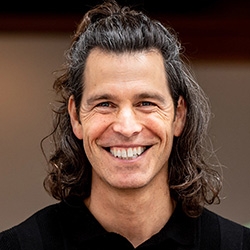

NVC Resources on Empathy
-
How to get past the sting of a painful comment? Get empathy from self or another. Then connect with the commenter's feelings and needs. The more you can do this the less personally you may take it. Then work together on specific, do-able, authentic agreement about doing something differently next time, the kind that will enable you both to shift out of reactivity. Three things need to be in place for that to work.
-
Often making an apology is not enough because people want greater depth of understanding and empathy. Instead of judging ourselves or feeling guilt we can "mourn" what we did that stirred up pain in others. This can bring about a sweet pain that leads to change. Then we can ask ourselves what we can do next time and make a commitment to do this and/or offer a regrets to the person expressing feelings and needs.
-
Amidst the Israel/Palestine war we see polarizing media portrayals and the battle for public opinion. Read how one person shares his deep, personal connections to the Israel/Palestine conflict, expresses the trauma and viewpoints of both Palestinian and Israeli experiences -- in a way that aims to transcend polarizations, hold compassion, and understand the complexity on both sides. Despite the immense challenge that defies easy resolution, he holds hope, noting historical reconciliations such as the ones between Germans and Jews.
-
Communicating with a client or patient with a mental health diagnosis can be tough. This guidebook introduces Nonviolent Communication, helping you develop more clear, compassionate, mutual satisfaction and potentially create conditions that heal those who look to you for help. With this guide learn to notice when your approach is likely to trigger defense and how to shift that to more authenticity, understanding and trust.
-
Yoram Mosenzon shares an exercise and demo to explore the process of identifying observations and using judgements (jackals) to find the needs.
-
Shifting to a needs-based perspective is one of the most powerful—and challenging—aspects of integrating Nonviolent Communication (NVC) into daily life. In this short video, Mary Mackenzie offers three simple, practical tips to help you cultivate needs consciousness and transform how you experience your world and relationships.
-
Trainer Tip: NVC-based social change naturally emerges from “a certain kind of spirituality”, a quality of spiritual clarity. Intuitions and impulses arising from spiritual clarity are more likely to support sustainable systems. Read on for how to bring more of this in, and ways to transform your complaint into commitment.
-
Whether its pandemics, climate change, damage to the environment or other massive challenges that humanity faces, what are we to do if we can't agree on even the most basic information and knowledge? From empathic understanding we can focus on shared, universal human needs (where there is no conflict or disagreement) underlying our perceptions, and feelings. Then we can see if there are ways we can agree on to meet those needs.
-
Kelly shares how freedom and autonomy create strong, healthy, and loving relationships.
-
What's really going on underneath the surface when we bring or encounter blame, judgements, pain -- and thereby the inability to empathize, be present, attuned, or responsive? Why does this happen even if one or more people in a relationship dynamic is working hard at bringing in an NVC response? This article addresses these and more questions from the perspective of how our brains are affected in our relationships.

Quick Links
Subscription Preferences
Stay In Touch!
Looking for ways to keep up with NVC Academy news, get special offers, free resources, or words of inspiration? Here are five ways to stay engaged:










